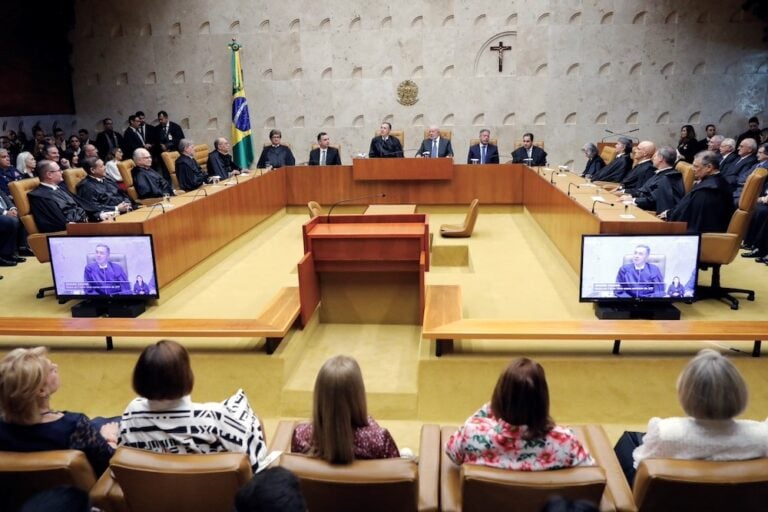(IAPA/IFEX) – The following is a 1 November 2006 IAPA press release: IAPA protests intimidation of Brazil reporters MIAMI, Florida (November 1, 2006) – The Inter American Press Association (IAPA) today protested an attempt by a Federal Police officer in São Paulo, Brazil, to intimidate three reporters from the magazine Veja, treating them as suspects […]
(IAPA/IFEX) – The following is a 1 November 2006 IAPA press release:
IAPA protests intimidation of Brazil reporters
MIAMI, Florida (November 1, 2006) – The Inter American Press Association (IAPA) today protested an attempt by a Federal Police officer in São Paulo, Brazil, to intimidate three reporters from the magazine Veja, treating them as suspects and attempting to force them to reveal the sources for their reports exposing the alleged participation of police officers in corrupt practices.
The reports said the officers were involved in what the magazine dubbed “Operação Abafa” (“Operation Cover-Up”) – a maneuver aimed at hiding the participation of Freud Godoy, a presidential aide, in the purchase of a document that would be used to incriminate political opponents of President Luiz Inácio Lula da Silva’s administration.
Reporters Camila Pereira, Júlia Duailibi and Marcelo Carneiro of Veja, a publication devoted to independent coverage of controversial issues in Brazil, were called on October 31 by the Federal Police in São Paulo to give testimony in an internal investigation into alleged offenses committed by police officers. However, the police questioning, conducted by Moysés Eduardo Ferreira, turned to the magazine itself, which he accused of “fabricating” news against the Federal Police.
“This is an abuse of power, in which representatives of the authorities, annoyed at the disclosure of corruption, mislead and seek to blame the press for offenses committed by their officials,” declared Gonzalo Marroquín, chairman of the IAPA’s Committee on Freedom of the Press and Information. “This incident is an indication of a lack of regard for freedom of expression guaranteed under Brazil’s Constitution.”
During what was supposed to be a deposition but turned out to be an interrogation, the police officer described reports written by reporter Júlia Duailibi as “fallacious” and he rebuked her about the origin of photos and information published by her magazine. She refused to reveal her confidential news source. She was also asked about the political affiliation of her editor.
The interrogation of Camila Pereira and Marcelo Carneiro was conducted in the same vein, the latter being held at the police precinct until local senators intervened and formally complained to the justice minister about what they called the intimidation of the journalists.
Marroquín, editor of the Guatemala City, Guatemala, newspaper Prensa Libre, said: “The attitude adopted by the Federal Police restricts the right to freedom of the press, to information and to keep the identity of news sources confidential.” He added that such conduct goes against the Declaration of Chapultepec, an IAPA-sponsored, ten-point document setting out the principles that should govern a free press, which was signed in May this year by Brazil’s President Da Silva.


